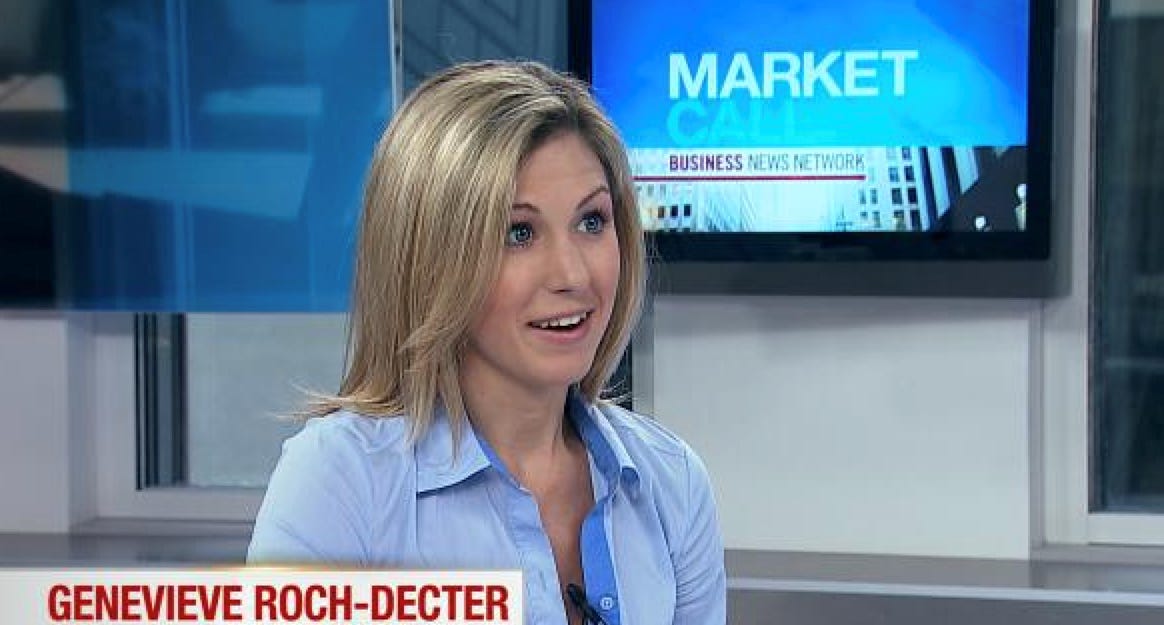Welcome to the first interview conducted by The Macro Mail. In this new addition to our regular newsletter, we interview industry experts to reveal new perspectives and insights for our subscribers.
We were incredibly lucky to secure an interview with Genevieve Roch-Decter, a former small-cap portfolio manager with a stellar track record. Make sure to follow her on Twitter and subscribe to her newsletter.
In the meantime, subscribe to The Macro Mail to never miss an update, and thanks for reading.
What's your background?
My name is Genevieve Roch-Decter, CFA. I am a former +$100M portfolio manager. For 7 years, I managed a small cap fund (as well as 3 other funds/mandates) which returned 13% CAGR net of fees to investors including the 2008 crash. It was ranked the #1 fund in its category (by GlobeFunds) for 3 of the 7 years I ran it.
I now manage my own money and write about it every week to ~7k investors. From billionaires & hedge funds to Robinhood retail investors.
When I am not working 15 hour days and the world isn’t in a perpetual lockdown – I golf, ski, bike & wakesurf!
What strategy did you utilize in the small-cap space?
I used a mix of 80/20.
80% were small caps with established business models and recurring revenue (roll-ups of boring businesses, dividend paying growth companies).
20% were speculative small caps in trendy sectors (cannabis, crypto, mining, gaming, healthtech, fintech etc) with tail-winds to rapid market cap growth.
What was your due diligence process?
I would meet with 3-10 management teams per week depending on how busy markets were.
Companies in the 80% bucket were easy to monitor with consistent quarterly financials, analyst coverage and press releases on material news like acquisitions/financings.
Companies in the 20% bucket were higher maintenance. For these ones I also needed to understand the cap table dynamics, where in the cycle of the trend we were, what deal people and promoters were behind the deal etc. Often times these companies were the equivalent to start-ups with just a business plan, no revenue and a lot of hopes & dreams!
What kind of valuation process did you go through?
I would use the company’s models or the analyst models if they were available.
For more speculative companies without revenue it was more understanding the other companies in the sector: what kind of capital, time & team was needed to bring their business plans to reality.
How long did it take to make a buy decision?
For the 80% bucket it would take longer (weeks/months) than the 20% speculative deals which often had a short fuse (days/weeks) because a financing was live.
With the speculative buys it was often a “hire fast, fire fast” mentality. If the company wasn’t performing, I would sell quickly and move on to other investment ideas.
With the 80% bucket I was much more patient owning positions for +5 years etc. Here it was more a “hire slow, fire slow” mentality – let your winners ride & be patient with a few missed quarters of lacklustre performance.
Did you find management meetings helpful? How many companies did you visit?
Management meetings took me many years to perfect. The glossy PowerPoint decks always paint the company in the best light.
Your job as a money manager is to figure what the management team isn’t telling you. You have to dig, make them uncomfortable a bit, ask weird questions. Also ask very BASIC questions – surprisingly a lot is revealed there.
If their answers are too long (like a liar) you know there’s something up. Pretend you’re a CIA agent.
I’ve been to mine sites, cannabis facilities and manufacturing operations all over North America. I’ve been to oil sites in Canada and South America, and in 2009 I went across China on a big investment trip.
What is the craziest story a management team told you?
A pretty famous mining billionaire CEO pulled a crazy stunt back in the 80s.
He had his team put up fake drilling rigs all over a property they were drilling for gold/copper.
They took a bus full of investors by and made it seem like activity was buzzing.
The stock ran up as these investors called their brokers from local payphones to buy more stock.
Obviously a highly illegal scam, but in the 80s, crazy stuff like this happened all the time.
Biggest win? Biggest loss?
Winners: Stocks I’ve held for ~10 years like DSG-T are my biggest winners. + 10x returns, low maintenance & keep chugging along delivering both top line & bottom line growth.
Losers: How much time do you have? Lol.
What do you do now?
I now manage my own money and write about it every week to ~7k investors.
From billionaires & hedge funds to Robinhood retail investors.
Quick pitch of your best idea?
The first issue of my newsletter Nov 1st 2020 I told my subscribers I was getting back into bitcoin at US $13k.
For my best ideas, tune in weekly: https://gritcapital.substack.com/welcome
Was this email forwarded to you? Subscribe here.
Follow us on twitter to never miss a post.





Nice interview. I was wishing she would tell us more about the losses, but of course, we do not have much time.